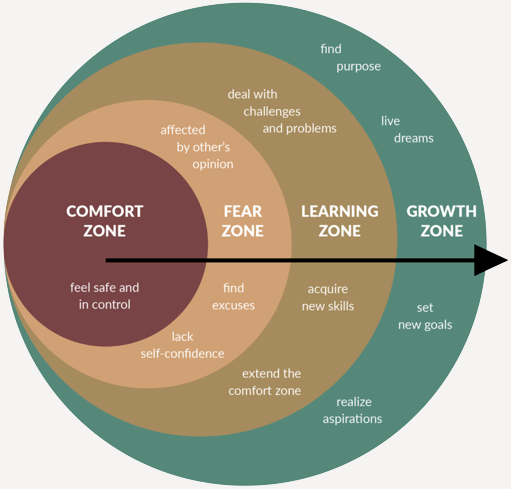This is how most people sabotage themselves

When was the last time you challenged a negative thought you had?
How we think (positively or negatively) sets the stage for how we feel, influencing our actions. Like a domino effect, the cycle continues, gaining momentum with each thought and action.
The bottom line is this: our relationship with our thoughts is a big deal.
We often let our negative thoughts or feelings dictate how we move through the world. But how can we manage them more proactively?
We can train ourselves to reframe these unhelpful thoughts to serve us better. The technical term for this is called cognitive restructuring.
The first step is to identify the unhelpful thoughts you've had that are causing you stress.
For example, maybe you're battling some feelings of imposter syndrome. A completely normal feeling that we all struggle with from time to time.
This thought may be interfering with your work. You're putting yourself out there less than you'd like to on social media, at conferences, etc. You need to promote your business more, but you feel less than confident in your capabilities.
Whatever that thought might be for you, ask yourself:
What evidence do you have to back up these thoughts?
Is that unhelpful thought even valid in the first place?
Probably not. It might even sound foolish after you consider it.
We can train ourselves to challenge our thoughts and not assume what we think is always based on facts. Follow it up by asking yourself...
What evidence might suggest your negative thought is not true?
Use these questions to judge your thoughts more accurately and rationally moving forward. Once you've analyzed them closely, what might be a more helpful thought you can substitute in its place?
Reflect on these questions next time you struggle with fear, imposter syndrome, limiting beliefs, overwhelm, or other mental roadblocks.
Recognize that facing these challenges is a sign of growth! Stepping out of your comfort zone is where your true potential lies.

Try this out next time an unhelpful thought hinders your ability to move forward.
Dan's Dispatch Newsletter
Join the newsletter to receive the latest updates in your inbox.




